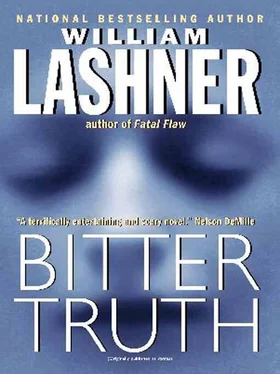“Cold and cold running water,” I said. I stepped to it and turned the knob. Nothing.
“What exactly are we looking for, Victor?”
“I don’t know,” I said softly. “But I feel something here, don’t you? Something cramped and desolate.”
“It just feels old and cold.”
An archway from the kitchen led to another room, mostly empty, with a fireplace. It must have been the dining room but there were no tables or chairs, only a massive wooden breakfront. The upper doors of the breakfront were lined, where one would expect glass, with a pleated yellowed fabric. I tugged the doors open. The shelves, covered with a browned paper, were entirely empty. The lower part of the breakfront held three rows of drawers and the drawers I could pull open also contained nothing but the same browned paper. The top middle drawer, designed for the most valuable serving pieces, was locked, but that too was probably empty. It was doubtful the Poole daughter would have taken the china but left the silver.
“I suppose she took everything she wanted and could carry out,” I said, “and abandoned the rest.”
“I think she just wanted to get the hell out of here,” said Caroline Shaw too loudly. “Who wouldn’t?”
“Shhhhhhh,” I said.
At the far end of the dining room was an entranceway that led off to a narrow set of stairs. I followed the beam of light and started climbing. Slipping slightly, I grabbed hold of the banister and it tore off in my hand with a shriek. The banister slammed into the wood flooring and slid nosily down the stairs, plaster cascading behind it. I jumped as if I had been goosed. I turned around and Caroline was smirking at me.
At the top of the stairs was a hallway. In the beam of light I could see four doorways, three of them open. Across from us was a small room with a listing wooden bed frame. When we stepped in something scurried across the floor and disappeared. On the wall were tacks, spiking remnants of yellowed paper into the plaster. The floor was filled with tumors of dust and crumpled bits of white stuff and there was trash piled in one of the corners. The window was covered with plywood.
The next room was a bathroom with a wooden floor and an old toilet. The sink was ceramic and cracked and there was one faucet. Beyond the bathroom was another room completely bare of any useful furniture, in its center a heap of broken chairs and shattered china. A doll without its head rested atop a rocking chair with only one rocker. Across the hall was the door that was closed.
Without waiting for me, Caroline went to that door and shoved it open. I followed her inside. This room too had a fireplace and there was a mattress on the floor and an old transistor radio, circa not 1923 but 1979. On the wall to the right, its sole window covered with plywood, hung a poster with a grinning, multicolored skull above the legend “ STEAL YOUR FACE! ” and another showing a leather-jacketed greaser with a pair of sneakers hanging from the neck of his guitar. Bruce Springsteen? The Grateful Dead?
“I guess old Mrs. Poole was ahead of her time,” I said.
“This was our room,” said Caroline softly. She picked up the small black-and-gray radio and turned it on, but nothing happened. “It’s still tuned to WMMR, I’d bet. Oh God.”
“What was this room before you and Harrington took it over?”
“I think it was Mrs. Poole’s bedroom,” she said without turning to me. “I seem to remember there was stuff in the closet.”
I looked at her for a moment, standing still, with the dead radio cradled in her arms like a baby, and then I stepped quickly to the closet door and pulled at it. It was stuck at first, swollen shut, but I gave it a good yank and it opened up for me with a shriek from the hinges.
Inside, moth-eaten, shabby with age, like skeletons of their former selves, were dresses, some still hanging, some slumped to the floor, their frills darkened, their colors washed out by the white light of the flashlight and their age. Which of these dresses, I wondered, had she worn on the night of the ball when she so publicly refused Claudius Reddman’s offer to dance? Well, he sure as hell deserved the rebuke.
With two fingers I lifted up the dresses from the floor, finding nothing but old shoes underneath. There was a shelf above the bar and I stood up on my tiptoes to look at it. Hats and shoes, the leather cracked, and a pile of rags in the corner. I jumped up and grabbed at the rag pile and pulled them down. Dust flew and I sneezed loudly. When I stopped sneezing I noticed now, in the corner, a little wooden box. I jumped up again and snatched it. With a little work I was able to lift off the lid.
“Photographs,” I said.
Caroline emerged from her reverie and we sat down together on the mattress, their mattress, to look at the pictures.
They were old black-and-white photographs, many with curly edges. There was a pretty young woman sitting on the ground, her head tilted suggestively, a long string of pearls knotted beneath her breast, and then the same woman sitting on a stoop, her hair long and young, a sly, sensual smile.
“Any idea who she is?” I asked.
“It looks like the woman that was next to Elisha Poole in the other pictures,” said Caroline.
“It does, doesn’t it,” I said, and it did, but it also didn’t. There was nothing sour in this young woman. “It must be Mrs. Poole, you’re right, but look how young she is. And in this one she’s almost laughing.”
There were other photographs of the woman, more formal photographs, posed in a studio, going back in time until there was one of her as a young girl, with her parents, the girl wearing a frilly dress, like an angel’s, button leather shoes, the serious smile of the very young. And there were pictures of a brash young man with wavy hair, leaning dramatically against a post, or clowning at the beach. On the back of the picture at the beach was written in a fading ink, “Elisha, Atlantic City-1896.”
“Look how handsome he was,” said Caroline. “Who would have imagined? I guess he was something before he became a bitter old drunk.”
“They’re all something before they become bitter old drunks.”
We kept going through the pictures, shining the light carefully on each, examining them one by one. There were pictures of the woman and the man together, laughing, in love, ready to conquer the world. In one picture there was an old man with his arm around Elisha. Elisha was leaning away, as if to gain some distance. The old man’s eyes were half open, one was blackened from a brawl, his nose was large and venous, teeth were missing from his mouth. “Elisha and his father,” was written on the back. And there was one that brought a gasp from Caroline.
“That’s my great-grandfather,” she said.
A young Claudius Reddman, in a vested suit, high collar, bowler hat cocked low over his bulging eyes, standing side by side a young Elisha Poole, their arms linked, a great blocky building behind them.
“That must be the before shot,” said Caroline.
I said nothing, only stared, feeling the life and camaraderie in the picture, the linked arms, the burgeoning possibilities. They had been friends. I hadn’t counted on that but here was the proof. They had been friends; did that make the betrayal any deeper? Is it more acceptable to swindle a stranger than a friend? Or can a friend more clearly understand that he is only doing to his pal, his buddy, his comrade-in-arms, what his comrade-in-arms would do to him had he half a chance? Could it have been that Elisha, in paying his friend what Yitzhak Rabbinowitz had described as a miserly wage, had a hand in his own financial destruction? “It was only business,” had said Claudius Reddman and I couldn’t help but wonder if he hadn’t learned his business practices from his dear and valued friend Elisha Poole.
Читать дальше












